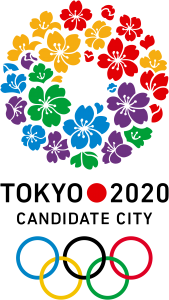 Japan will host the 2020 summer Olympics, and this world stage puts Japan in a spotlight that may ultimately harm the free expression of manga and anime in the country. Any nation that hosts an Olympic event works to put their best foot forward, but some countries resort to whitewashing anything that might blemish their image, thus impinging on free expression. (Most recently, this has been observed in the furor that erupted over Russia’s anti-LGBTQ legislation and the upcoming winter Olympics in Sochi, Russia.)
Japan will host the 2020 summer Olympics, and this world stage puts Japan in a spotlight that may ultimately harm the free expression of manga and anime in the country. Any nation that hosts an Olympic event works to put their best foot forward, but some countries resort to whitewashing anything that might blemish their image, thus impinging on free expression. (Most recently, this has been observed in the furor that erupted over Russia’s anti-LGBTQ legislation and the upcoming winter Olympics in Sochi, Russia.)
Dan Kanemitsu, translator and Japan culture expert, recently examined the potential impact of the summer Olympics — and the resulting domestic and international scrutiny — on creative expression in Japan. Kanemitsu noted that the winning bid to host the Olympics may boost the profile of the current ruling party, the Liberal Democratic Party, which is currently attempting to revise legislation to include manga and anime as forms of child pornography:
Now it will be harder than before to protest against specific policies of the LDP as their standing has improved considerably. Recall that the current initiative for redefining child pornography to include manga and anime are being pursued by the members of the LDP leadership, but this only the beginning.
Plans to incorporate youth protection ordinances into a national law have been proposed in the past, and the appetite within members of the LDP to subject all media toward a healthy development agenda is growing…
For the most part, the more draconian regulation of manga and anime is regional. For example, the Kanagawa Prefecture rules that a publication that contains one-fifth or 20 pages of content that they deem “indecent postures, sexual acts, or depictions that could be treated as equivalent,” then the publication in unsuitable for anyone but adults. However, the definition of indecent is vague at best. (Note: The closest equivalent to a prefecture in the U.S. is a state, but they are not precisely the same thing since Japan does not have a federal democracy.)
Tokyo’s Youth Healthy Development Ordinance is another means by which manga in Japan is frequently restricted. The ordinance is considered less draconian than Kanagawa’s law, but it still results in the restriction of some half dozen books per month.
Kanemitsu writes about the potential impact of nation-wide legislation that mirrors the practices in Kanagawa and Tokyo:
Details regarding a national version of a regulation “healthy development of youth” have not surfaced, but the creation of a national standards will more than likely create a situation where manga and anime’s diversity will diminish. Currently, the line that separates books aimed for adults and general audiences are rather vague. There are broad frameworks available that keeps sexually explicit material out of easy reach from children, but a nationalized system run by the government will tend to compel publishers to play it safe and avoid publishing material that might run afoul of the law.
Kanemitsu further notes that official legislation may not even be needed:
Actually, it appears that how books will be sold in Tokyo will be changed without the aid of passage of any new laws. News broke where that supposedly members of the International Olympic Committee grimaced over how adult themed magazine were available at Japanese convenience stores, and thus Tokyo will no reconsider how books are sold in convenience stores.
Kanemitsu admits that he may be sounding a false alarm, but he has history to back up his conclusions. Kanemitsu cites the fact that the last time Japan hosted an Olympic event — in 1964 — the resulting “beautification” had a detrimental impact on artistic expression in the country, resulting in the removal of disfavored books and campaigns that targeted manga specifically.
Kanemitsu finds the thought of any censorship resulting from the Olympics disturbing, effectively citing how censoring one type of expression could impact others:
We do not know for sure if IOC inspectors grimaced at magazines in convenience stores, (one of them maybe had the urge to sneeze but was able to fight it off,) but the fact that there is talk of Tokyo’s bureaucrats pushing for revising how publications are sold simply because they perceived foreigners disdain for Japan’s liberal publishing traditions is very chilling. Tokyo is the capital of Japan, and any decision made in this city have wide-ranging consequences. If certain people make it their prerogative to force Japan’s anime and manga to conform to foreign standards that are more conservative that Japan, they can make a lot of fuss and could compel publishers self-censor not only sexually explicit material, but material that deals with race relations, political drama, and military themes.
Free expression is already under attack in Japan, and the Olympics may only serve to embolden censors around the country. You can read the entirety of Kanemitsu’s article on his blog, Dan Kanemitsu’s Paper Trail.
Please help support CBLDF’s important First Amendment work and reporting on stories such as this by making a donation or becoming a member of the CBLDF!